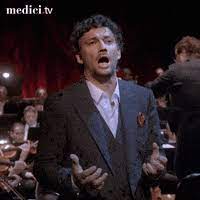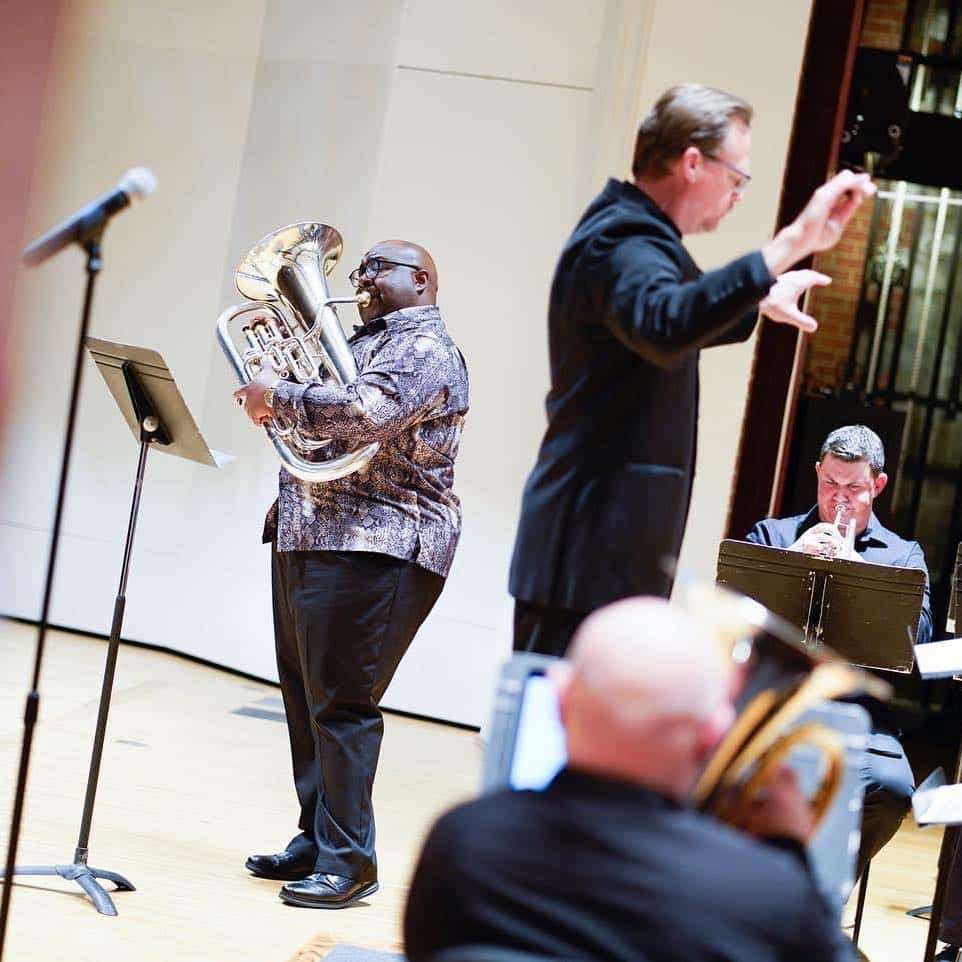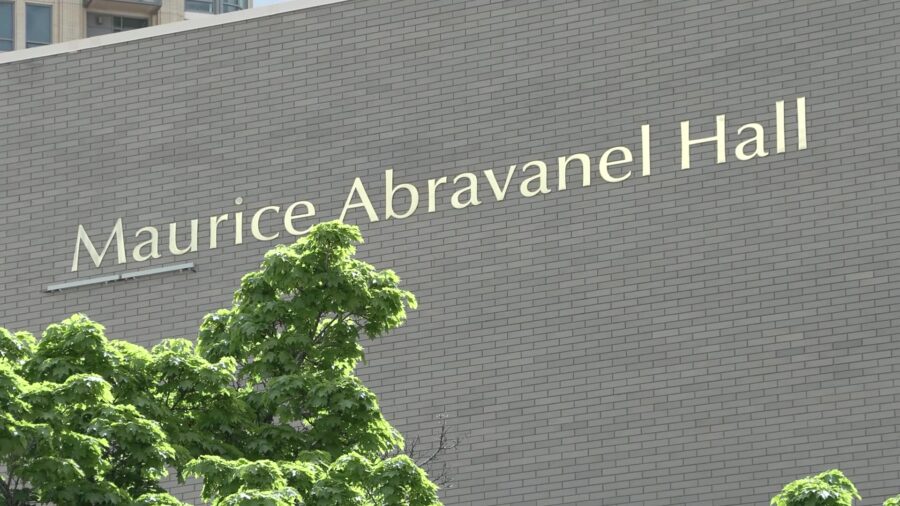Is Medici facing threat from Arte?
NewsThe French-German television channel Arte has announced plans to stream opera from 21 European houses, including Paris, Prague, Dresden, Vienna, Palermo, London, Brussels, Helsinki and Hamburg.
Arte, which is free to view, is lavishly funded by two governments.
Where does that leave independent pay-per-view operators like Medici?
Arte’s press conference details here.






There’s a logic to a publicly funded TV station broadcasting publicly funded opera, though Medici is also a good initiative.
ARTE is a French/German collaboration that goes back to the historical French/German core of the EU. I think its ethos flows out of the blood of two world wars, the idea that Europeans should strengthen their cultural bonds.
It stands in contrast to the UK’s flight from Europe reminiscent of the chaos and confusion of Dunkirk and which will have even greater historical consequences. This time around the British won’t be back and the balance of power in Europe dramatically shifted for decades to come.
The problem is that arte, in spite of its small viewership, could be, and probably is, a tool for strengthening Franco-German cultural hegemony in Europe. Why not have an arte that gives equal voice to all of Europe? Things like that might have kept the Brits around.
Another problem is how to have the wonderful benefits of public media without falling victim to a kind of less-than-lively Staatskultur. The danger isn’t so much propaganda as it is the gray dullness of civil servant culture, what Germans sometime call Beamterkultur.
All that said, I’m still strongly on the side of public media and public funding for the arts. The challenge is to make sure arte remains lively, autonomous, and ready to challenge in the best spirit of the arts, that it becomes a means of prodding and inspiring state supported cultural institutions to be more creative and daring. Then I might watch arte a little more often without sensing an overly routined, nationalistic, hegemonistic Beamterkutlur.
“…reminiscent of the chaos and confusion of Dunkirk”?
(Well, don’t forget all that white privilege and toxic masculinity; I’m sure this would have been the cause of much of that confusion!!!)
Your analogy is tasteless and the usual Leftist hate-fuelled cant. And the danger IS propaganda.
“Why not have an arte that gives equal voice to all of Europe? Things like that might have kept the Brits around.”
While I doubt the latter, I think this would have been a good idea 30, 40 years ago. And to be fair: There’s not one single unencrypted British channel “in the spirits of the arts” here on “standard German” sat positions (19.2E). Same goes for most other (EU) countries. Yet, you (and, as I said, other (EU) states) get to enjoy (or not) this French/German channel for free. Maybe it’s a perspective thing and you experience the same, but here most foreign channels are either encrypted, “beam-locked” (satellite footprint), or commercials only. Maybe with a MUCH (>2.5m) larger dish I could receive BBC here.
“what Germans sometime call Beamterkultur.”
Never heard of it, but it’s Beamte[n]kultur. You used it twice, so I thought maybe I should tell you. 🙂
” Then I might watch arte a little more often without sensing an overly routined, nationalistic, hegemonistic Beamterkutlur.”
I pretty much never watch TV anymore. Except for football (anyone knows why Americans call their game “football” when they carry the “ball” (it’s not even a ball!) around in their hands all the time? It just doesn’t make sense… Spheroidbrawl would be more appropriate. You read it here first. Fun fact: This will be the first entry for this word in Google.) or live events.
If the arts and culture were used for hegemonic purposes, or public relations or whatever, it would make sense to offer broadcasts for free as with Deutsche Welle, the BBC international programs, VOA, Radio Free Europe, Russia Today, etc.
arte seems to have in some respects a similar function. One of many positive effects created by the demilitarization of Europe after WWII has been that France and Germany attempt to assert their identity (and hegemony) more through culture than violence–which needless to say is a large historical shift. For Germany, this is now moving to economic dominance. If history is any indication, this might not end well.
I think an arts channel equally covering all of Europe with a sense of egalitarianism would be a great thing, and much needed. Sadly, the future of the EU will likely be something else.
“Russia Today, etc. // arte seems to have in some respects a similar function”
Wait, WHAT? No. Noooooooo.
“For Germany, this is now moving to economic dominance.”
Now? We’re there for decades.
” If history is any indication, this might not end well. ”
Not sure what this has to do with anything here. And with a references point of one, well… Using that logic, presidents should not drive through Dallas in a 1961 Lincoln Continental, I guess. If history is any indication, this might not end well.
“I think an arts channel equally covering all of Europe with a sense of egalitarianism would be a great thing, and much needed.”
I would have agreed 30, 40 years ago (in retrospect). But sure, let’s play this out how it would look today: For any kind of documentary, you need translations in all EU languages (of course, English would be the easiest, but GB isn’t even part of the EU, so…) Let’s hear what Hungary has to say about this: The EU dictatorship is forcing us to translate this imperialistic french hegemony propaganda and broadcast it in our great nation! It’s money, we could use to make Hungary great again! (By the way, here’s our next week’s prime-time special about art depicting Merkel as Hitler. Erm, and we’d need money to translate that. Now would be great, thanks.)
And yes, I do think that this would also be the argument if there’s just subtitles. Would that make sense? Nope. Would that matter? Nope.
Maybe many arts channels under one roof could work. But traditional TV? Never.
We really need a mechanism to kick out countries of the EU. They forgot to include that in the feel-good post-soviet-union-collapse era.
What was the question again? 😉
Much of your response is just silliness, but I will respond as best as I can. Yes, Germany has been economically dominant for a long time, but the Maastricht Treaty and Euro brought it to a new level. Germany’s treatment of Greece during its debt crisis is a vivid example. Some charitably called it a “Bitch-slapping.”
arte broadcasts in a wider array of languages would be welcomed, and in fact, they are already expanding the range of subtitles available on their website. Working in several languages is the very nature of the EU. Improvement is needed in the coverage of the arts outside of Germany and France.
Yes, the EU needs methods of kicking countries out, and surprise, surprise, no one howls more about that than Germans. The basic view is increasingly that the EU is Germany and its satellite countries. I watched through the 80s and 90s as the Helmut Kohl administration worked to establish in the founding treaties German dominance in the EU. A common part of this was xenophobic polemic about the Mediterranean countries. I remember one politician saying that Eastern Europe should be Germany’s Latin America. He was apparently clueless to the ironies and the cat he was letting out of the bag. Unfortuantely, Kohl’s goals are increasingly realized in what the EU is becoming.
The essential problem is neoliberalism, an economic system that leaves unmitigated the flow of capital to the centers of capital. The enormous sculpture of the Euro in the center of Frankfurt stands as an ironic truth.
Unfortunately, this discussion here reveals the difficulties in addressing these issues: the resentment and arrogance so many Germans offer when people try to address these problems, the attitude that anything outside of German interests is trivial.
“Much of your response is just silliness,”
You started the silliness by comparing arte to Russia Today. Just leveling the playing field. Arte doesn’t push antisemitic, xenophobic, anti-vax narratives. Russia Today does. My examples may be silly. But they are not erroneous.
But you’re right, I like to use easy-to-follow examples. And I also like to make them silly. It’s more entertaining for me that way.
Fun fact: The poor guys who had to correct the tests in theoretical physics back in the day bought me beer as a thank you, because my test was the only one that wasn’t a dull read. (And yes, I passed.)
“Maastricht Treaty and Euro brought it to a new level. ”
As I said: Decades.
“Some charitably called it a “Bitch-slapping.””
I believe you. Then again, I did believe you when you came up with Beamtenkultur. Let’s say I cautiously believe you.
“Improvement is needed in the coverage of the arts outside of Germany and France.”
That’s what I said. But that’s neither France’s, Germany’s, and for sure not GB’s business. It’s up to them.
“Yes, the EU needs methods of kicking countries out, and surprise, surprise, no one howls more about that than Germans.”
Yes, we don’t like to see the dismantlement of basic democratic principles. You’d think it’s a good thing, regarding our past. Ah, well.
“Unfortuantely, Kohl’s goals are increasingly realized in what the EU is becoming. ”
That doesn’t mean we (and France etc.) have to pay for the dismantlement of basic democratic principles in other countries, now, does it.
“The essential problem is neoliberalism, an economic system that leaves unmitigated the flow of capital to the centers of capital. The enormous sculpture of the Euro in the center of Frankfurt stands as an ironic truth.”
As much as I share your disdain for my fellow economists (or people in general): You’re oversimplifying things. (And hey, I voted Green! Like always. 🙂 )
“Unfortunately, this discussion here reveals the difficulties in addressing these issues: the resentment and arrogance so many Germans offer when people try to address these problems, the attitude that anything outside of German interests is trivial.”
That’s your takeaway? Okay. Mine is:
“Dear EU members! We, that’s France and Germany, made a TV channel dedicated to culture some decades ago. Maybe that’s something you’d like to make, too? We’d love to see that! (And let’s make it an app, no one watches TV anymore. And because of different satellites positions and stuff.)”
But again, that’s their thing to do. Or not to do. Should the EU fund this? Sure, why not. Should the EU fund this if its main goal is to demolish democratic norms? I don’t think so.
PS: I asked around and the consensus was that condescending and arrogant would describe me better. Just saying.
Surprised you haven’t heard the term Beamtenkultur. A quick google search shows numerous references to to the term. It’s a useful even if provocative concept.
https://www.google.com/search?q=Beamtenkultur&nfpr=1&sa=X&ved=2ahUKEwiExbzwh67zAhWVgf0HHaFBBGEQvgUoAXoECAEQNw&biw=1536&bih=758&dpr=1.25
Dear Sir. The „Kultur“ you reference and that is being debated in this forum is not a common term in Germany. In my experience. Just because something can be found in the internet doesn’t and shouldn’t give it credence. I would have thought that 4 years of Trump in the White House would have cleared that up.
“Surprised you haven’t heard the term Beamtenkultur.”
I’m a bit surprised you have heard of it. 😀 But all jokes aside, I don’t think it’s a thing. A lot (most, actually) of these entries are linked to a song with that name from an obscure band that produced half an album in 1981:
https://www.youtube.com/watch?v=Cg5vDw8RXMU
Most of the other entries refer to an article published in some “Tübinger Beiträge zur Volkskultur”.
Obviously, I haven’t check all entries, but I’m confident that at least some of them were “Buy original Beamtenkultur (2021) now!”, as some sites create instant content to match search queries in order to get clicks (and thus revenue).
Machste nix.
Government money, government ‘art.’
I doubt medici is very profitable, it should change its business model to free content in exchange for viewership to generate advertising revenue
Arte streams classical music with a lousy sound quality of 128kbps. Medici TV streams at 320kbps, which is very close to CD quality. Arte is therefore no competition for Medici TV.
“lousy sound quality of 128kbps” & “320kbps, which is very close to CD quality.”
It heavily depends on the codec, but it’s true most of the time when comparing two streams with different kbps encoded with the same codec.
Some (newer) codecs have a better quality with the same kbps but need more CPU power or even special hardware support to decode it. In other words, older machines cannot make use of this improvement, as the audio/video will stutter or not play at all.
Lavishly funded, like the BBC?
And by “independent” do you mean bankrolled by Rolex?
Great, I’m looking forward to it all!
Arte’s great, but we Americans need a VPN. Maybe you Brits too now that you have left the EU.
I pay Medici once a year and don’t think about it. With Medici I get a lot more than the opera ARTE will offer.
Remember there is also OperaVision. What will happen to that?
I had nothing but trouble with Medici. When I went to cancel my subscription I found I was unable to and without the intervention of American Express I’d still be paying for a service I no longer wanted because of poor internet speeds!
As a small footnote to the more important discussion above, this press release seems to have been translated by Google. Conductors come off badly Thielemann is Tillmann, Bicket is Beckett and Omer Meir Wellber is correctly spelt once then incorrectly later!!
Could we just for once be happy, applaud, not see a conspiracy ? It’s surely good news that a large number of tax-payer-funded opera houses are having performances broadcast on a taxpayer-funded TV. Maybe other taxpayer-funded broadcasters could follow suit?
“Could we just for once be happy, applaud, not see a conspiracy ?”
Booooooring!
I’m not sure if this is a good or bad idea in the long run. It needs to be more promotion than substitution. If it attracts more people to actually attend (and pay for) performances then it’s obviously a good idea. If the result is less live audience, well… I guess we’ll see.
And they really have to start selling better wine there. Or cocktails. I probably would have liked some operas more with an Aku Aku or Mai Tai after the first act. Mental note: Buy mint leaves.